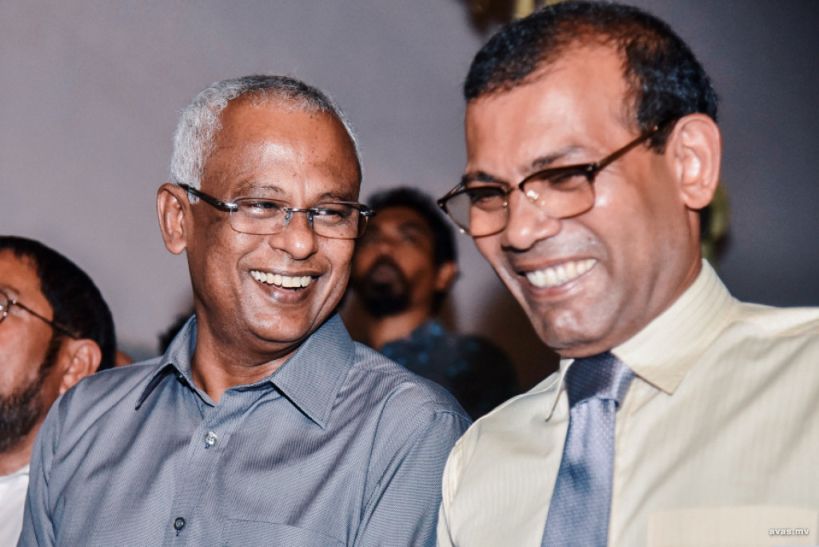Maldivians turned up in large numbers to vote in presidential elections on Saturday as Asian competitions India and China await the results. President Ibrahim Solih is pitted against opposition rival Mohamed Muizzu and estranged party member and former Speaker Mohammad Nasheed.
The tiny archipelago has ensured that countrymen can caste their votes as far as the UK, Malaysia, Abu Dhabi, India and Sri Lanka.
Results will be declared on Sunday, September 10. In case of a tie, another round of elections on September 30 will be held.
The electoral battle has eight contenders from five political parties and three independents – a fairly large number for a country with just 0.52 million people, almost half of whom are voters.
A poll in August by the Baani Center think tank had put Solih in the lead with 21 per cent support while just 14 per cent respondents supporting Muizzu. However, at least 50 per cent of people were undecided.
The Western media has commented on the elections as a contest between New Delhi and Beijing.
For the last five years, President Solih has championed the “India First” policy and has sought to put ties with Beijing in the shadows. Solih’s India First policy resonates with India’s “Neighbourhood First” policy that seeks to pass on the benefits of India’s progress to the South Asian region and beyond.
On the other hand, a coalition of Maldivian opposition parties have been consistently running the ‘India Out’ campaign led by disgraced opposition leader and former president AbdullaYameen – a strident Beijing supporter. He has been jailed by the court for taking bribes for the development of island resorts, and the money has been traced to his bank accounts.
Yameen had joined the global Belt and Road Initiative (BRI) and had invited China to develop mega-infrastructure initiatives like the China-Maldives Friendship Bridge. His policies led the tiny Indian Ocean nation to almost falling into the infamous Chinese debt trap. However, elections put him out of favour and swept in the due of Solih and Nasheed to power – both close to New Delhi.
However, President’s Solih’s compatriot and global environmental icon Nasheed broke away from the Maldivian Democratic Party (MDP) to float his own political outfit The Democrats. Known for his liberal views and also for opening up the country to democratic change, he has often found himself on the opposite side of public favour in a country swaying under radical influences.
Nasheed was seriously attacked in 2021 when an improvised bomb exploded close to his residence. He had to be flown to Germany after initial medical aid where he took almost four months to recover. The chinks between the two liberal politicians Solih and Nasheed began developing after the attack.
The Maldives is strategically located in the Indian Ocean, south-west of Sri Lanka, straddling the vital shipping lanes, considered important by China. It was an important ally for Beijing till Yameen was in power as it allowed the communist giant to keep an eye on India by ring-fencing pliable South Asian nations around peninsular India.
With Maldives, India has not only been building strong personal ties between Prime Minister Narendra Modi and Solih but also provided $2.7 billion in grants and loans for various infrastructure projects. India has also stationed a handful of troops in the country.
Within the larger neighbourhood also India has meticulously pushed back the dragon not just from the Maldives but also put up a solid front in Sri Lanka, Bangladesh, Myanmar and Afghanistan using different strategies as well as its benign human and development assistance. Solih had complimented New Delhi for its ability to be the first responder in the region.
With nebulous situations gripping large parts of South Asia and the world too gripped in turmoil, it would be in India’s interest if President Solih makes it to power for the second time, and also create history. The country’s opposition parties are known to be fickle and keep shifting allegiances. If Solih manages to win even with a narrow margin and pulls in a couple of leaders from the opposition, he would have created electoral history for himself and his party – the MDP. India will heave a sigh of relief before becoming alert again to the elections in Pakistan and Bangladesh later this year.




















